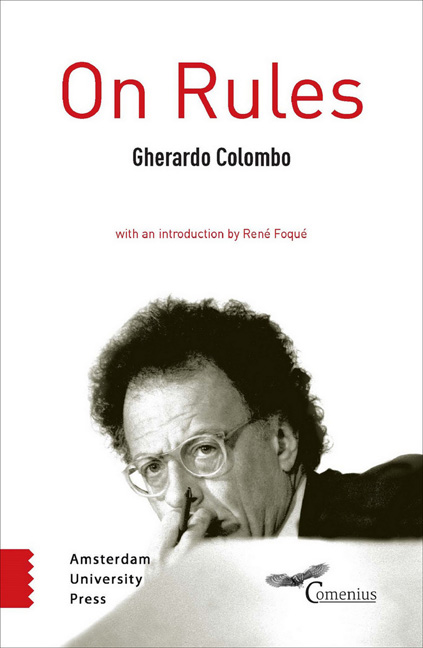Book contents
- Frontmatter
- Introduction: Gherardo Colombo’s Concern for the Democratic State under the Rule of Law: A Work in Progress
- Why?
- 1 An Imaginary Country
- Contents
- Part I The Ambiguities of Justice
- Part II Horizontal Society and Vertical Society
- Part III Towards a Horizontal Society
- Part IV How Do We Get There?
- Conclusion
- Acknowledgments
5 - Law Comes From God
Published online by Cambridge University Press: 24 December 2020
- Frontmatter
- Introduction: Gherardo Colombo’s Concern for the Democratic State under the Rule of Law: A Work in Progress
- Why?
- 1 An Imaginary Country
- Contents
- Part I The Ambiguities of Justice
- Part II Horizontal Society and Vertical Society
- Part III Towards a Horizontal Society
- Part IV How Do We Get There?
- Conclusion
- Acknowledgments
Summary
The word ‘justice’ has always been taken as a point of reference to ‘justify’ the content of laws. This is not an easy task, given that the word ‘justice’ can refer to social systems (and hence sets of rules) that are clearly at odds.
The need to ‘justify’ law goes back to time immemorial.
At the dawn of human history there were no particular problems. Back then, law and justice coincided, because the former was thought to emanate directly from god. If god is just, and it is he who establishes the rules, then these cannot but be just. Later it was the priests who interpreted god's will and conveyed it to society, but the premise that justified the content of the norms was the same: law was an emanation of god; therefore laws continued to be just by definition.
A roughly similar approach continued to exist as long as it was believed that authority had a divine origin, as long as empires and absolute monarchs existed and succession was dynastic. As long as the Church had a secular role, anyone who held power (emperor, king, prince or pope) had a privileged relationship with god, deriving from Him his commanding power. As a consequence, the laws he enacted had a ‘divine’ justification. It is not an accident that even Napoleon Bonaparte, on 2 December 1804, crowned himself emperor in front of the pope, as the representative of god on earth, and the ceremony took place in Notre Dame Cathedral. According to this view, law was justified by its source.
On closer inspection, though, there was no certainty about the content of the term ‘justice’. In effect, even god's word was not always unambiguous and, with a modicum of effort, one could search the Scriptures to find contradictory justifications for laws whose content was diametrically opposed.
Here are some examples of the, at least apparent, mutual incompatibility of god's words.
On the one hand, divine justice is intended as separation, exclusion, elimination, and spoliation:
Every morning I will put to silence all the wicked in the land; I will cut off every evildoer from the city of the Lord. (Psalm 101, 8)
My angel will go ahead of you and bring you into the land of the Amorites, Hittites, Perizzites, Canaanites, Hivites and Jebusites, and I will wipe them out.
- Type
- Chapter
- Information
- On Rules , pp. 39 - 42Publisher: Amsterdam University PressPrint publication year: 2016

